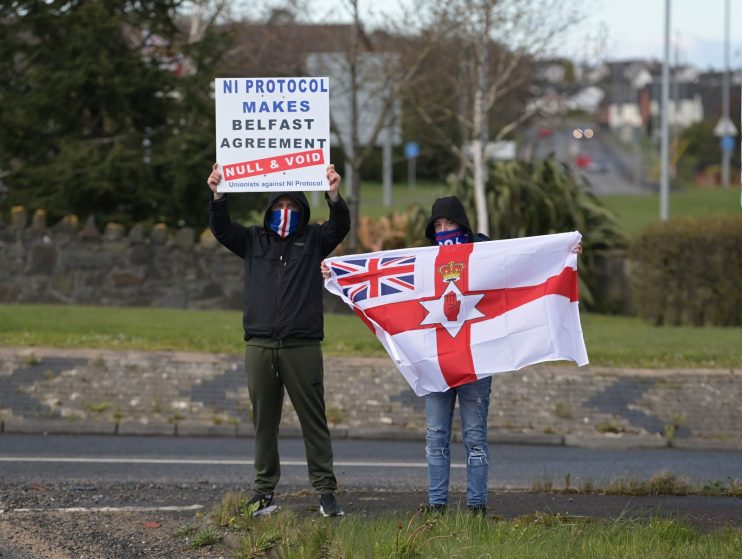EU commissioner: There has been ‘positive movement’ on Northern Ireland Protocol talks

One of Brussels’ top officials has said there has been recent “positive movement” in post-Brexit talks over Northern Ireland and that the UK will consider a negotiated delay to the so-called Great British sausage ban.
European Commissioner for financial services Mairead McGuinness revealed today that the UK has formally written to the EU to say they are “open and they will want to discuss” extending the transition period on chilled meats going from Great Britain to Northern Ireland past June.
The UK and EU have been locked in tense negotiations for months over how to administer the post-Brexit Northern Ireland treaty.
The treaty sees Northern Ireland still follow the EU’s customs union and single market rules, unlike the rest of the UK, in order to avoid a hard border with the Republic of Ireland.
This has created a so-called border in the Irish Sea, which has infuriated parts of the Northern Ireland unionist community.
Boris Johnson has called on Brussels to administer the protocol in a less bureaucratic way by implementing less checks on goods going between Great Britain and Northern Ireland.
One of the key issues being discussed is the EU’s ban of chilled meats, like sausages and minced beef, crossing from Great Britain to Northern Ireland that is due to begin at the end of June.
Johnson has threatened to ignore the ban and suspend the treaty if it is not lifted – a move the EU has warned could cause a trade war.
However, McGuinness told the British Irish Chamber of Commerce that the UK wrote to the EU just last week and said “they’re open and they will want to discuss extending the deadline in relation to processed meats from the end of June into September”.
This is in stark contrast to UK-EU minister Lord David Frost who said last week there had been “little progress” in talks and that “all options remain on the table”.
This was believed to include triggering Article 16 of the protocol, which would suspend it entirely.
McGuinness was also asked about the future of UK financial services firms in the EU, replying that “we’re still not yet at the place where we will sit down and look at” equivalence decisions.
The UK’s financial services sector lost its wide ranging pre-Brexit access to EU markets on 1 January this year.
The only way the City can regain its former access is if the EU grants equivalence – a process considered unlikely as the UK government is planning on diverging from EU financial services regulations.